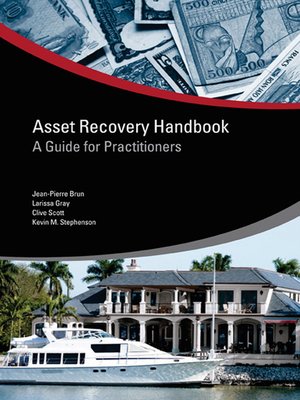
Sign up to save your library
With an OverDrive account, you can save your favorite libraries for at-a-glance information about availability. Find out more about OverDrive accounts.
Find this title in Libby, the library reading app by OverDrive.



Search for a digital library with this title
Title found at these libraries:
| Library Name | Distance |
|---|---|
| Loading... |
Developing countries lose an estimated US$20-40 billion each year through bribery, misappropriation of funds, and other corrupt practices. Much of the proceeds of this corruption find 'safe haven' in the worldâs financial centers. These criminal flows are a drain on social services and economic development programs, contributing to the impoverishment of the worldâs poorest countries. Many developing countries have already sought to recover stolen assets. A number of successful high-profile cases with creative international cooperation have demonstrated that asset recovery is possible. However, it is highly complex, involving coordination and collaboration with domestic agencies and ministries in multiple jurisdictions, as well as the capacity to trace and secure assets and pursue various legal optionsâwhether criminal confiscation, non-conviction based confiscation, civil actions, or other alternatives. This process can be overwhelming for even the most experienced of practitioners. It is exceptionally difficult for those working in the context of failed states, widespread corruption, or limited resources. With this in mind, the Stolen Asset Recovery (StAR) Initiative has developed the Asset Recovery Handbook: A Guide for Practitioners to guide those grappling with the strategic, organizational, investigative, and legal challenges of recovering stolen assets. A practitioner-led project, the Handbook provides common approaches to recovering stolen assets located in foreign jurisdictions, identifies the challenges that practitioners are likely to encounter, and introduces good practices. Included are examples of tools that can be used by practitioners, such as sample intelligence reports, applications for court orders, and mutual legal assistance requests.







